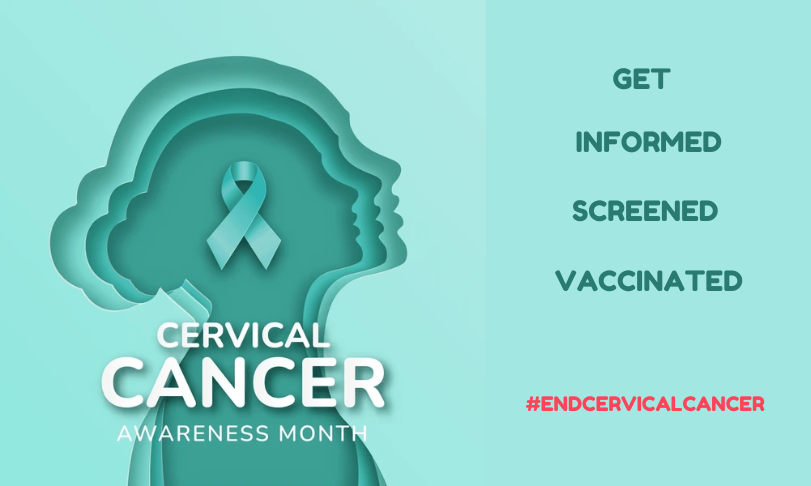

Get Informed, Screened, and Vaccinated, this CERVICAL CANCER AWARENESS MONTH
12th Jan, 2024
Cervical cancer remains a significant health concern, affecting women globally. Despite advancements in healthcare, it continues to be a leading cause of cancer-related deaths in many parts of the world. Cervical cancer ranks as the 2nd most frequent cancer among women in India and 4th most prevalent cancer among women on a global scale.
Cervical cancer develops in a woman’s cervix, which is the entrance to the uterus from the vagina. Although (Almost everyone who has ever been sexually active has been exposed to HPV and there’s no stigma in it!
Unfortunately, the majority of cervical cancer is asymptomatic which is what makes it hard to detect still some of the common cervical cancer symptoms can be bleeding after intercourse and increased vaginal discharge. Also, poor access to prevention, screening, and treatment contributes to 90% of deaths. Cervical cancer is preventable and treatable if caught early. Regular screenings, such as Pap smears and HPV tests, are crucial for early detection and prevention. Cervical cancer screening typically starts at age 30 and is repeated periodically. Vaccination against HPV significantly reduces the risk of cervical cancer. The cervical cancer vaccine, HPV is safe, effective, and protects substantially against cervical cancer. The World Health Organization (WHO) recommends 2 doses of HPV vaccine given to girls between ages 9 and 14 years old for best results. The rationale behind vaccinating at a young age is to ensure that individuals are protected before they are exposed to the virus. There is also a separate vaccination schedule and dosage for older women.
According to the WHO, to end cervical cancer, 9 out of 10 girls should receive HPV vaccination, 7 out of 10 women should undergo screening by the age of 35, and 9 out of 10 women identified with cervical cancer should be treated.
By fostering awareness, promoting early detection, and advocating for accessible healthcare, we can strive towards a future where cervical cancer is a preventable disease, ultimately saving lives and improving women’s health worldwide.

